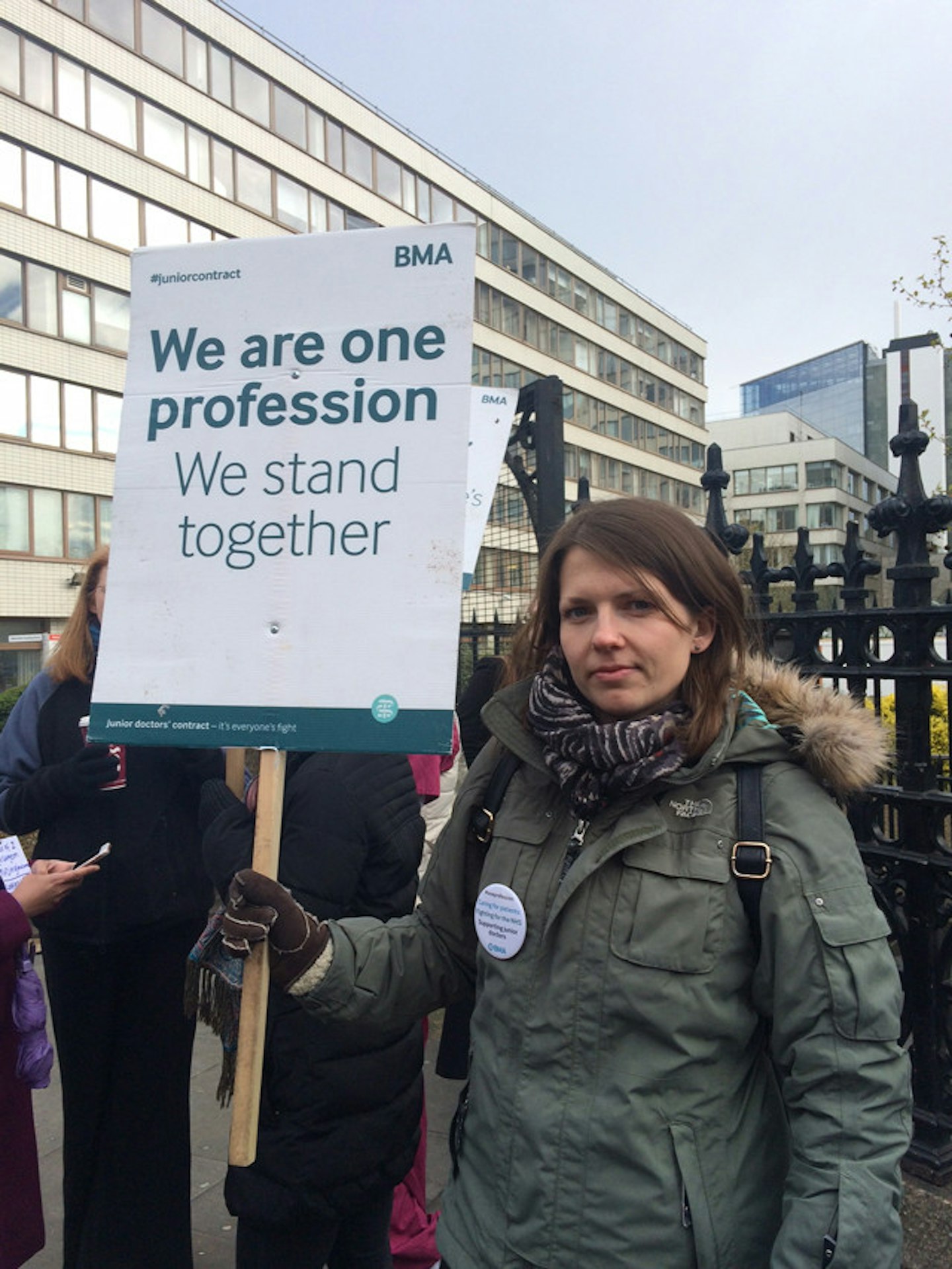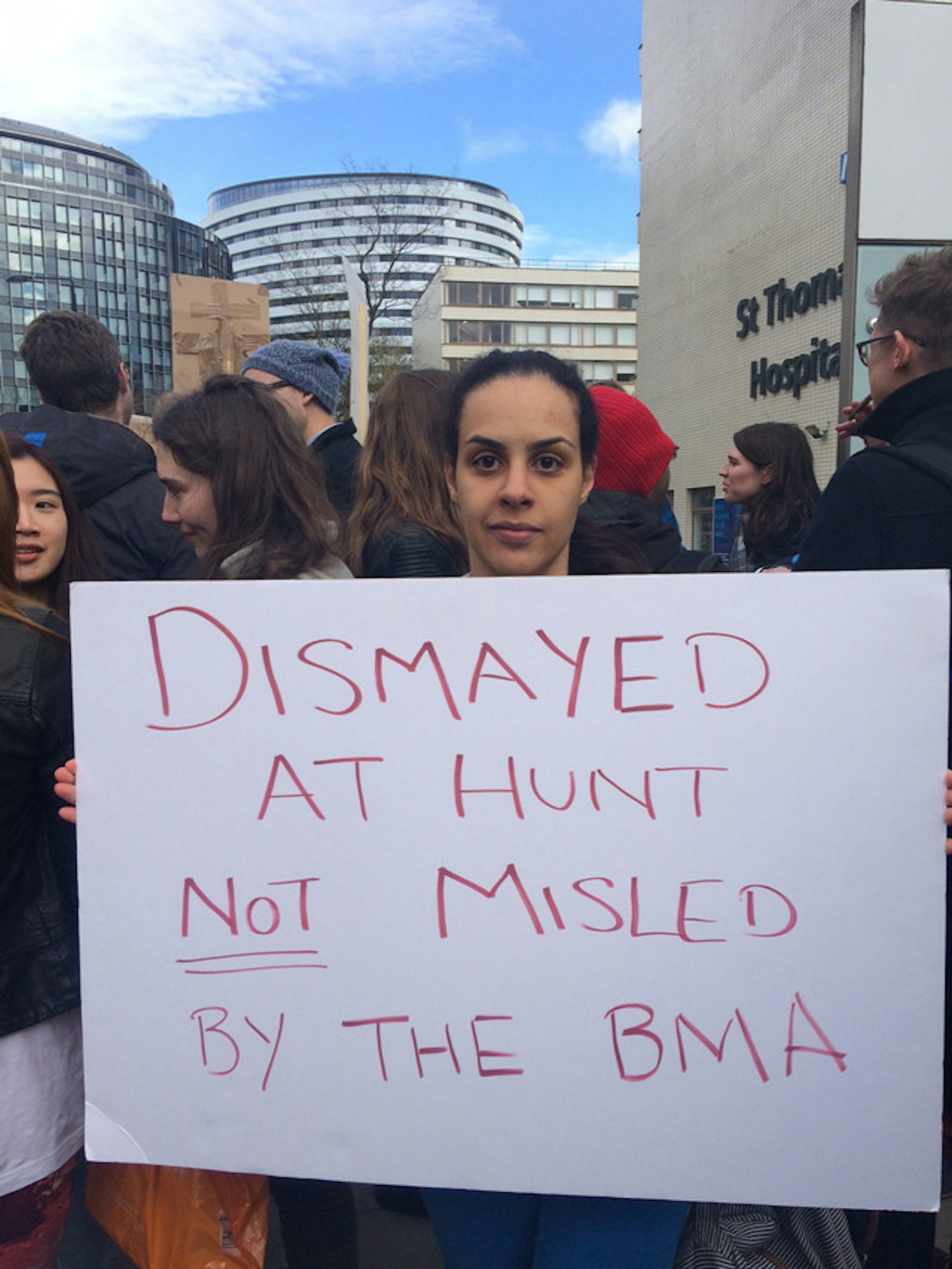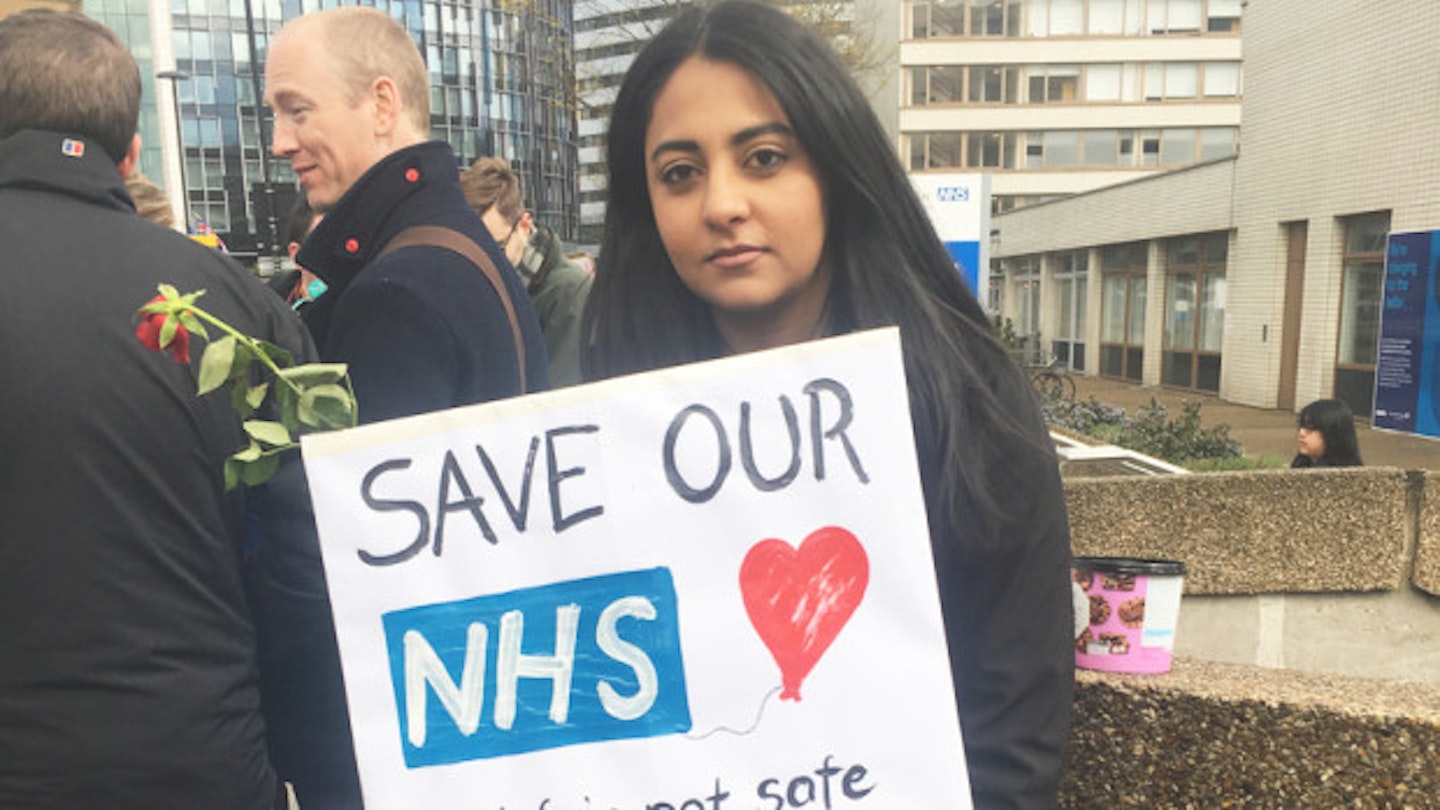This week junior doctors staged a walk out – an all-out two-day strike as part of the ongoing row over their contracts. It was the first strike of its kind in the history of the NHS. More than 20,000 junior doctors are thought to have been involved as the British Medical Association, who represent doctors, and the Government, specifically Health Secretary Jeremy Hunt, remain in a standoff. Despite calls from MPs from all parties as well as doctors themselves to reconsider a new contract last week the Health Secretary went ahead and imposed it, leading to this week’s all-out strike.
Why Are Junior Doctors Striking?
Junior doctors have been striking because of a new contract which has been imposed by the government that will change the way they work, both in terms of hours and days and how much they will be paid for them. The British Medical Associationhas said that these changes are 'unsafe' for paients and doctors alike.
What Is The New Junior Doctors Contract?
The old contract is generally agreed to have been in need of reform because it was out of date. However, the new contract, imposed by the Government, will change the way doctors are paid dramatically, which doctors argue puts patient safety at risk. As part of their manifesto at last year’s general election the Conservatives promised to deliver a ‘truly seven-day NHS’which functioned fully at weekends. The new contract is being sold as part of that.
Basic pay will be increased by 13.5% on average, however, what are defined to be ‘unsociable hours’ has changed. Day hours on a Saturday will be paid at a normal rate, while premiums for working nights and the rest of the weekend are now lower than they were before. It’s this aspect in particular that has been deemed problematic, possibly even illegal, because of the effects it will have on women doctors.
Why Is The Junior Doctors Dispute Happening?
Firstly, it’s not just about junior doctors, this will affect all doctors. But, junior doctors are the ones who will finish their training and come of age under the new system. Essentially this is about pay and hours, and how that will affect the distribution of staff in NHS hospitals.
The government, it’s generally agreed, has handled negotiations badly. They have failed to explain how they intend to resource the ‘seven-day NHS’ they are trying to provide and not offered up enough detail for doctors to fully understand exactly how the proposals will affect them. This has led to doctors justifying going on such an unprecedented strike.
How Does The New Contract For Doctors Affect Women?
The Department of Health’s own Equality Impact Assessment of the controversial new contract admits that it would ‘impact disproportionately on women’, with particular disadvantage being caused for single mothers, those who take time off to have children, go part-time or act as carers. Many have pointed out that this could create and enforce a ‘gender pay gap’ in the medical profession. As the government’s own assessment states the new contract ‘could have equalities implications’.
The Guardian has reported that the Equality and Human Rights Commission (EHRC) has also told the government that the way the new contract discriminates against female medics is ‘potentially illegal’. The EHRC’s review explicitly says that the Department of Health hasn’t properly considered the impact of the new contact. The document states,
‘The EHRC is concerned that the UK government’s analysis [of the equality issued raised by the contract] suggests an adverse impact of the contract on groups that disproportionately include women, such as those who take time away from work for maternity leave and caring responsibilities. This may indicate that women junior doctors will have inferior conditions of work under the new contract, which would be inconsistent with Article 7 ICESCR, unless it can be justified’.
What Do Junior Doctors Say About The New Contract?
We spoke to some young female junior doctors who were on strike earlier this week outside St Thomas’ Hospital in London and asked them how they feel, particularly about the fact that the new contract so openly discriminates against and disproportionately affects women. Here's what they said:
**Sanna Khawaja, 28 has been a junior doctor for four years. She currently works in the emergency department at St Thomas’. She is an A&E doctor. **
‘Myself and my colleagues are striking today because we are extremely worried about this new contract on our patients for whom it’s unsafe and on our doctors for whom it’s unfair, particularly if you’re a woman. Overall, for our National Health Service, which is being threatened by this contract being forced into place.’
‘It’s incredibly heart breaking that in 2016 people are able to say out loud without much consequence that female doctors are actually a bad thing for our NHS, I think it’s incredibly unfair. Whether we are working here as doctors or at home, looking after our children, we are contributing to society and it’s not fair that they can penalise one group for being able to do both.’
Ellie James, 25 started as a junior doctor last August. She works in psychiatry.

‘My day normally involves seeing all of the ward patients and reviewing anyone who’s had a particularly bad night – monitoring the mental state of patients.’
‘We’re striking because we don’t think the new contract that the government are trying to impose is safe – it’s not safe for patients, it’s not safe for us to work [in the way that they’re suggesting]. It’s an unrealistic contract that won’t actually work. Even the rota coordinators at East Surrey are having difficulty in making a rota that’s going to fit because they don’t have enough guidance on how it’s supposed to work – the details of the contract itself. It seems to be too difficult to deliver and the government aren’t really recognising that. Jeremy Hunt, in this whole six-month dispute, has only met with two junior doctors – and that was last week. I don’t think he has a proper grasp of the issues.’
‘East Surrey, for example, is a very busy hospital. There might be a couple of arrest calls a day, there are also things called medical emergency team calls – it might not be a cardiac arrest but someone’s seriously unwell. Because there are enough staff at the moment there are enough of us to deal with it – but if you try and stretch that same workforce over 7 days instead of 5 it feels like you’re going to end up with gaps in the week by trying to patch over the weekend – they want to do this but they aren’t addressing a need for more resources. I just don’t see how they think they can stretch it over 7 days.’
‘People are leaving – there are junior doctors at our hospital who are dropping out because they’ve got better offers elsewhere. They’re leaving to go to places like Australia and some people are leaving medicine completely and applying for graduate jobs in the city because they’re being pushed too much.’
Jenna Murtha, 25 began working as a junior doctor last year. She works in the Acute Medical Unit.

‘Most days you do the medical take in – which means you see every patient who’s come into the hospital that day. It’s a busy job because we’re a busy hospital – I see patients of all ages with all conditions.’
‘I think that there are a lot of things that need to change, we already have a seven-day NHS but there are things that could be done to make it safer. But I’m here because I think that we can enter into a discussion – I don’t think that Hunt’s way is particularly right but I think if there was more discussion then we could come up with a realistic plan. We are already pushed to our limits as junior doctors and it’s quite hard to have a social life or any work life balance. If they change the normal working day – with extended hours – including a Saturday it doesn’t leave much time. Especially with thinking about going part time in the next few years if I wanted to have a family – it just doesn’t seem realistic. It limits us, especially when we’ve trained for 7 or 8 years.’
‘We work 12 hour shifts routinely, sometimes 13 hours. But if you’re doing that more often we are going to end up being more tired as a result and you don’t want a tired doctor going to a crash call.’
**Kate Luce, 29 is a paediatric doctor working at St Thomas’ Hospital. **

‘We’re not happy about them imposing the new contracts I personally do really believe that it’s going to be putting patients at risk. What they want to do is make us work unsafe hours.
‘This is a sad day. We do a job that we love and when someone is trying to take that away from you it’s a horrible feeling and you want to be able to provide good care – no matter whether you’re a woman or a man. If you’re unable to give that care it’s upsetting.’
‘I don’t have children of my own at the moment and so I can give my career my whole attention but that is going to change because, eventually, hopefully I’m going to have children. I’m going to have a big dilemma – if it’s not going to be cost effective [to keep working] because it will cost me money to come to work and put my children in childcare then I’ll have to re-evaluate my work.’
‘We have registrars who have just had kids and as things stand they are thinking about leaving because they can’t afford to make childcare work. And that’s a real shame, because these are fantastic doctors and they’re going to be leaving a profession where they do a fantastic job.’
Kim Bradbury 31, also works on paediatrics at St Thomas’ Hospital.

‘I’m on strike today because I think that the proposed contract is unsafe. My patients, who are just babies now, need a health service that’s going to last for the next 20 or 30 years to look after them. I also think the new contract is unfair on women – the government have acknowledged that themselves but they say that it’s for a legitimate aim…’
‘It’s absolutely frustrating that women are being punished more by this new contract and it’s disgraceful that the government can recognise that but not feel the need to address it. Medicine has actually traditionally lead the way in terms of equality for men and women and this will be a backward step if the new contract goes through and women are disproportionately affected.’
‘I think it will be harder to recommend medicine as a career to women who want, very reasonably, to have both a career and a family. I don’t think that’s an unreasonable thing to want but it needs to be supported by the system that we work in. I don’t have children yet but I’d like them – but it may not be possible with the new contract. If I have to leave the profession that will be a waste of my time and the money that’s been spent on training me.’
You might also be interested in:
Follow Vicky on Twitter @Victoria_Spratt
This article originally appeared on The Debrief.
